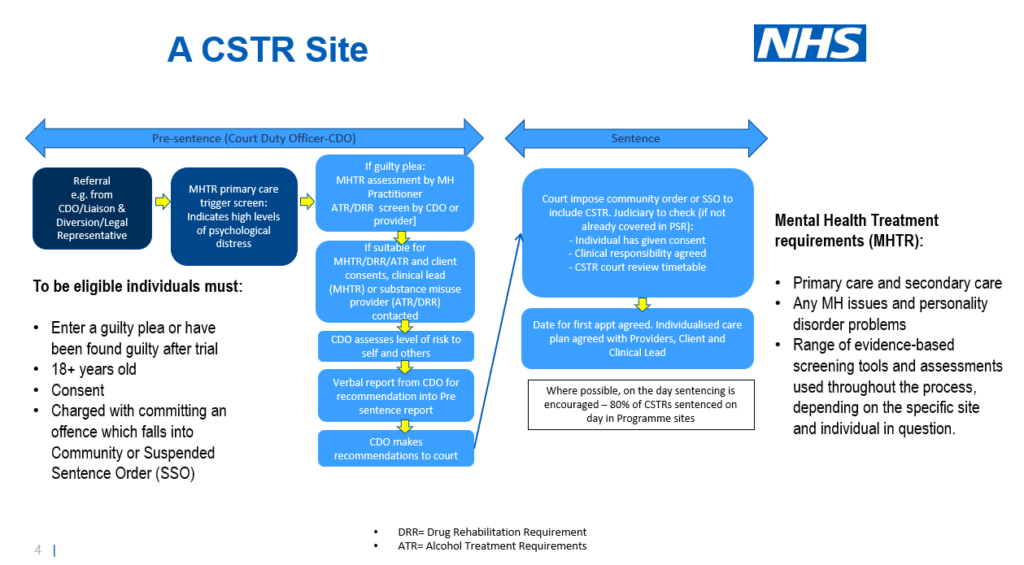
Recent years have seen government policy increasingly focussed on pathways from the criminal justice system into treatment for people experiencing drug or alcohol problems
On Monday 27 September, Collective Voice hosted its latest webinar, focussing on the intersection of substance misuse treatment and the criminal justice system.
Recent years have seen government policy increasingly focussed on pathways from the criminal justice system into treatment for people experiencing drug or alcohol problems, from the rollout of project ADDER (Addiction, Diversion, Disruption, Enforcement and Recover) to the £80m investment seen earlier this year. Commitments have also been made to increase use of Community Sentence Treatment Requirements, which include Alcohol Treatment Requirements and Drug Rehabilitation Requirements.
Meanwhile, at local levels, Police and Crime Commissioners in some parts of the country have taken the lead in changing the narrative around substance misuse and crime, funding diversion schemes, deferred prosecution schemes and post-release accommodation for prison leavers.
However, as Dame Carol Black made clear in part 2 of her independent review of drugs, there are still far too many people cycling in and out of prison who are not receiving the support they need to address their drug and alcohol problems.
And the particular systemic challenges facing probation services were recently brought to light by HM Inspectorate of Probation and the Care Quality Commission in a joint thematic inspection of community-based drug treatment and recovery work with people on probation.
This report was the subject of the webinar’s keynote presentation delivered by Chief Inspector Justin Russell. Shockingly, despite there being 75,000 people on probation with a drug problem, just 3,000 referrals to specialist treatment were made in 2020.
Attendees also watched presentations of good practice and innovative approaches from:
- Megan Jones, Director of New Business and Services at Cranstoun, on the charity’s criminal justice services delivered in the West Midlands, including the DIVERT programme and the Cranstoun Arrest Referral Scheme.
- Mignon French, Mental Health Treatment Requirement Programme Manager at NHS England/Improvement, on the latest developments around the primary care MHTR programme, which is looking to increase their use across the country.
- Phil Bowen, Director of the Centre for Justice Innovation, on procedural fairness and court-based drug treatment, with particular focus on problem-solving courts and the importance of judicial monitoring.
Related Content
Collective Voice CYP Forum responds to ACMD drug prevention report
The report provides an excellent overview of the current drug prevention landscape in the UK. It’s comprehensive, evidence-led, and crucially draws operational insights from those currently delivering prevention activities.
Work as recovery: Supporting employment during Alcohol Awareness Week
This Alcohol Awareness Week, WithYou is calling on employers and policymakers to recognise work as a recovery tool, which can change the lives of people
Collective Voice responds to the 10-year health plan
When the plan trumpets ‘a devolved and diverse NHS’, I wonder if it should really be saying ‘ a devolved and diverse health system’ Read